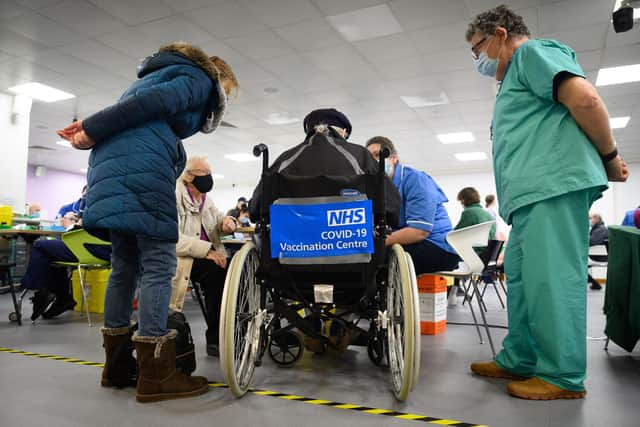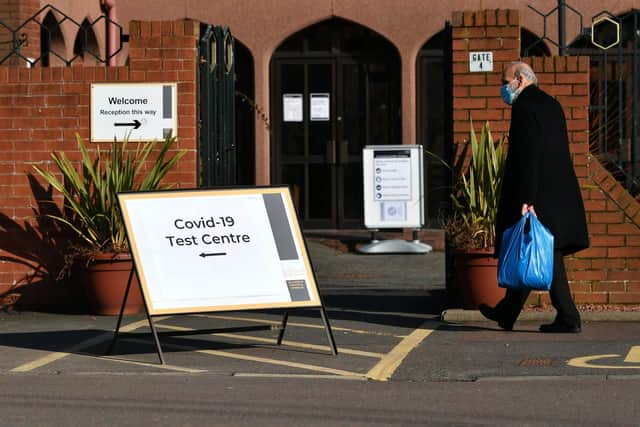Covid Scotland: Pandemic recovery gives Scotland 'real opportunity' to address health inequalities
The Health Foundation will publish results of an inquiry into experiences of the pandemic across the UK next month.
Ahead of publication of the report, Sarah Davidson, advisory group member and chief executive of the Carnegie UK Trust, and Mehrunisha Suleman, bioethicist and senior research fellow leading the inquiry, said the pandemic has exposed health inequalities which were already present in Scotland
Advertisement
Hide AdAdvertisement
Hide AdThis must be recognised by members of the public and decision makers, they said, and decisions made in Scotland’s recovery process after the pandemic should aim to address these issues.


There has been a “very visible social gradient” in terms of mortality during the pandemic,” said Ms Suleman, which should be recognised.
“There is a real opportunity to incorporate thinking about mitigating inequalities in terms of recovery and long-term decision making,” she said.
The pandemic has had a greater effect on certain groups, with people in deprived areas or working more unstable jobs more affected, as well as those in minority ethnic groups and disabled people.
Issues including poverty, lack of access to education, unstable working conditions and lack of access to technology are all connected to worse health outcomes, said Ms Davidson, who formerly worked as a director general in the Scottish Government.


“If the pandemic has had any impact at all on the way that we look at the world, it has been in really illuminating the interconnectedness of things,” she said.
“It has shown the false dichotomy whenever there's been a debate about whether to prioritise the economy or prioritise health.
“You immediately see that you can't set up that opposition, because you can't have a strong economy without good population health, and you can't be healthy unless your basic needs are met.”
Advertisement
Hide AdAdvertisement
Hide AdWhile in older people Covid outcomes tend to be linked to frailty and underlying health conditions, Ms Davidson said there was a “strong correlation” between the impact of Covid on under-65s and “entrenched patterns of deprivation and inequality”, including in housing and employment.
Analysis shows the UK has had particularly high rates of deaths in under-65s – second in Europe only to Bulgaria.
“What that points to is the socio-economic circumstances for those under-65 age group being particularly key,” said Ms Suleman.
Ms Davidson said she believed governments and members of the public had begun to “connect the dots” between health and other factors.


“You've suddenly all at one time got people whose jobs are at risk, who are possibly out of a job, whose mental health is suffering, whose children are not in school, who can't access digital technology, in the way that others can, and we’re having an actual health crisis,” she said.
“The joining of the dots between those things could be done at any point in time, but the point is that it doesn't get done.
“It has been done now, and this is the opportunity that we see to try and really focus attention on the fact that these things are fundamentally connected. Pigeon-holing them, and trying to deal with them as little slices of public policy, is not going to lead you to end up where you need to be.”
A message from the Editor:
Thank you for reading this article. We're more reliant on your support than ever as the shift in consumer habits brought about by coronavirus impacts our advertisers.
If you haven't already, please consider supporting our trusted, fact-checked journalism by taking out a digital subscription.
Comments
Want to join the conversation? Please or to comment on this article.
